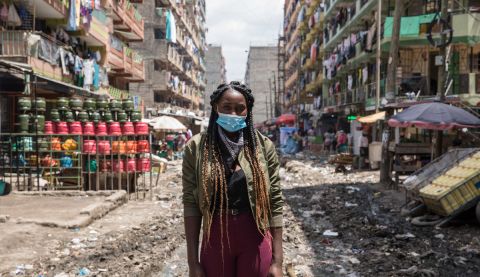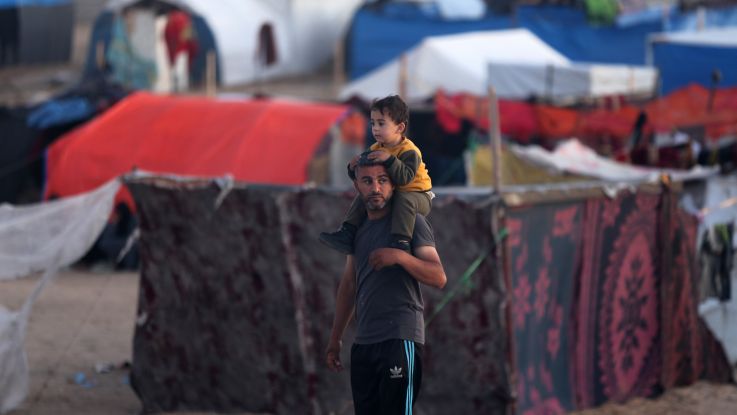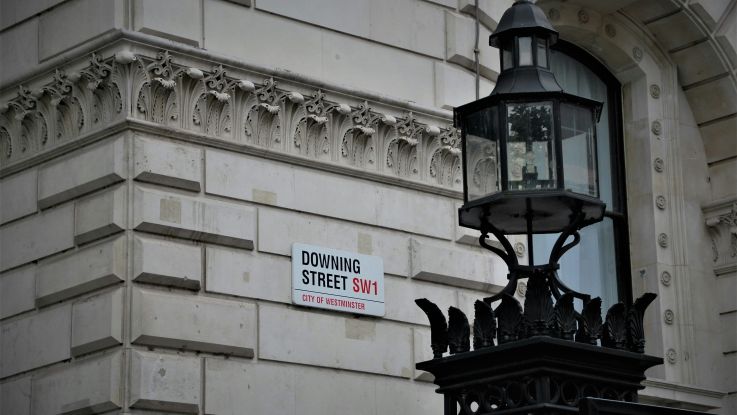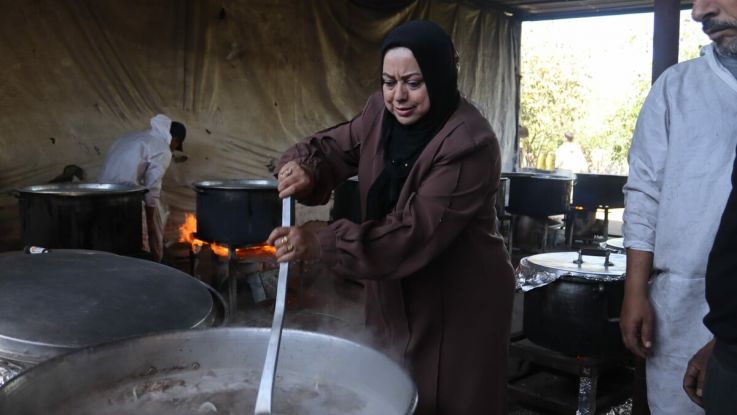The Grand Bargain: what does the future hold?
15 June 2021
Five years on from the first Grand Bargain meeting, what progress has been made, and what still needs to change?

Mai, 19, a member of ActionAid Kenya’s Young Urban Women Project, has also received support from ActionAid as part of our coronavirus response. Photo: ActionAid
This week marks the fifth anniversary of the Grand Bargain meeting – an annual meeting which brings together agencies, donors and INGO signatories who have signed up to the ‘Grand Bargain’ agreement.
This agreement sought to reform the humanitarian system by reducing the humanitarian funding gap and improving the efficiency and delivery of aid put in place at the World Humanitarian Summit in 2016.
Now, five years down the line, the agreement is due to be re-evaluated – and to do so, it's important to consider what progress has been made to date, but also, what still needs to change?
The Grand Bargain: what needs to change?
The Grand Bargain has proven to be an important and unique platform.
It remains the most critical collective initiative to strengthen the effectiveness and efficiency of humanitarian aid 1 . Important progress has been made towards achieving the Grand Bargain’s ambitions, some including:
- improving joint and impartial needs assessment, with the roll-out of a preliminary inter-agency intersectional analysis framework
- harmonised reporting requirements, and recognition for greater transparency
- strengthening steps towards supporting and funding local and national responders.
So why is it that the ongoing plans to reform the humanitarian system still fail to meaningfully engage women and their organisations, or to be felt by women most affected by crises?
Gender and the Grand Bargain
There remains a major gap between the recognition of gender in the Grand Bargain debate, and the actions taken to address it.
Positive progress has been made: gender did not initially feature in the language of the Grand Bargain in 20162 , but measures to translate it into action still remain limited.
When women and their organisations’ contributions are undervalued, it can have long-lasting and detrimental impacts on their rights.
Specific progress on funding and capacity-strengthening with women’s rights and women led organisations remains difficult to assess due to limited data collection.
In 2019, only 2% of Grand Bargain signatories reported against the core commitment indicator on capacity-building support for local women’s rights and women led organisations.
Similarly, tracking of the volume of funds directed to these organisations remains very limited: only 4% of signatories reported against this indicator, and efforts to institute more detailed tracking of funding for local women’s organisations have failed across the system.3
This is problematic and concerning on many levels.
When women and their organisations’ contributions are undervalued, it can have long-lasting and detrimental impacts on their rights - as well as the humanitarian system’s capacity to effectively respond to their needs and that of their communities.
The Grand Bargain 2.0 is an opportunity for change
As the new Grand Bargain 2.0 is being negotiated, there is an opportunity to transform the inequity in the humanitarian aid structure – one which places gender and power at the centre of the debate.
As we sit in these discussions, we must consider and question whether we have examined how the humanitarian system works for those most affected.
Only 3% of women's rights organisations and women led organisation survey participants directly engaged in any Grand Bargain meetings or events over the first five years.
Have we given the space and voice to local actors, namely women's rights and women led organisations, to have a say?
ActionAid collaborated with over 20 women's rights organisations and women led organisation partners in 10 countries to gather their thoughts and perspectives on how to shape and implement the Grand Bargain 2.0 so that it's more effective for women and girls.
One of the key findings of ActionAid’s research indicated that despite willingness, availability, and interest, only 3% of women's rights organisations and women led organisation survey participants directly engaged in any Grand Bargain meetings or events over the first five years.
Indeed, only a few of the surveyed organisations fully understood what the Grand Bargain is, how they can contribute to it, or what benefits they might receive from these contributions.
This lack of robust engagement is a missed opportunity for the Grand Bargain and the wider humanitarian system at large.
How can we make real progress in achieving Grand Bargain commitments without including women and their organisations – who we know, time and time again, are at the frontline of humanitarian emergencies?
There must be direct input from women's organisations
Humanitarian policy, including the Grand Bargain, cannot continue to make decisions about how to serve crisis-affected women and girls without the direct input of the women’s rights organisations and women led organisations who serve them.
The future iteration of the Grand Bargain is an opportunity to correct this: it is imperative we work to address the blockages that obstruct progress on gender equality and the empowerment of women and girls.
This includes investing more resource and funding in women and their organisations, and shifting the power of decision-making and partnerships to deliver system-wide changes.
Local women-led and women's rights organisations need to be part of those decision-making processes.
Only then will gender-transformative action be possible.
Read more about the Grand Bargain and gender equality
Our latest policy briefing draws on relevant literature on the Grand Bargain and Gender Equality and the Empowerment of Women and Girls (GEEWG) commitments to date, as well as qualitative survey data with ActionAid’s partners and staff in 10 countries.
It provides key recommendations for shaping and implementing the Grand Bargain 2.0 so that it is more effective for women and girls.
Footnotes
- 1https://voiceeu.org/search?q=VOICE+policy+resolution+2021
- 2ODI (2021) The Grand The Grand Bargain at five years: an independent review: https://odi.org/en/publications/the-grand-bargain-at-five-years-an-independent-review/
- 3ODI (2020) Grand Bargain Annual Independent Report, 2019: https://odi.org/en/publications/grand-bargain-annualindependent- report-2019/



